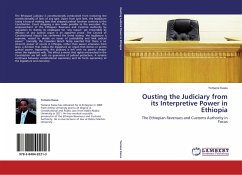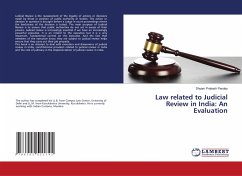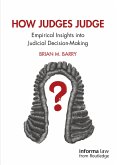The judiciary (also known as the judicial system or judicature) is the system of courts which interprets and applies the law in the name of the sovereign or state. The judiciary also provides a mechanism for the resolution of disputes. Under the doctrine of the separation of powers, the judiciary generally does not make law (that is, in a plenary fashion, which is the responsibility of the legislature) or enforce law (which is the responsibility of the executive), but rather interprets law and applies it to the facts of each case. This branch of government is often tasked with ensuring equal justice under law. It usually consists of a court of final appeal (called the "supreme court" or "constitutional court"), together with lower courts. The judicial branch has the power to change laws. The term "judiciary" is also used to refer collectively to the personnel, such as judges, magistrates and other adjudicators, who form the core of a judiciary (sometimes referred to as a "bench"), as well as the staffs who keep the system running smoothly.








